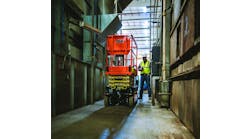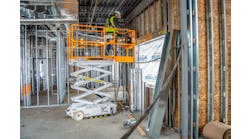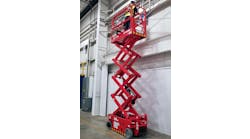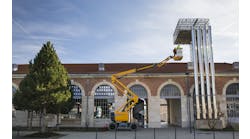As part of an ongoing series of interviews on how manufacturers and rental companies are coping with increased costs in the middle of a market slowdown, RER recently interviewed Peter Bigwood, president of Atlas Copco Construction Tools, Westfield, Mass. Bigwood spoke with RER’s Michael Roth about the effects of the current “perfect storm” and how manufacturers and rental companies are looking to improve efficiencies in the supply chain.
RER: Atlas Copco Construction Tools, like other manufacturers, has been hit with major costs increases. Can you describe the impact of those?
Bigwood: We have suffered significant cost increases across the board — for example, cost of heavy steel plate imported into the U.S. has shot up since the beginning of the year by more than 20 percent. With our manufacturing largely centered in Europe, we, like many of our competitors, have faced the additional burden of the 25+ percent drop in value of the U.S. dollar against the Euro. There is no magic here — these are real costs, and no manufacturer can absorb these kinds of increases and remain viable without passing on price increases at some point.
How has increases in the cost of fuel affected your business?
Higher fuel costs have hit us in a number of areas. At the most basic level, our entire sales force is equipped with pick-up trucks, and our monthly fuel bills have risen spectacularly, along with everyone else’s. Second, as we are importing the bulk of our products from our European and Asian production facilities, we suffer from the increase in associated shipping costs. Finally, when we absorb the freight costs for certain shipments to our customers, we are, in effect, further cutting into our already pinched margins.
How much have margins been affected?
Most manufacturers in our industry operate at broadly similar margin levels. If an annual supply agreement is in force with a given national rental chain, with fixed pricing agreed upon for a 12-month period, then inevitably, there will be pressure on the manufacturer's margins as costs go up without the possibility of passing on the increases. While there are strategies available to minimize the most egregious effects — currency hedging, forward buying, improving production efficiencies — ultimately, these are effective for only so long, and then the full impact of the cost increases hits margins hard.
Any thoughts about what issues of contention there might be between manufacturers and rental companies in the current environment?
Typically, a manufacturer will make an offer for an annual preferred supplier agreement based on an implicit or often explicit expectation of certain volumes. When those volumes fail to materialize, the manufacturer suffers a double whammy: poor absorption at the factory coupled with low prices for the smaller number of units that are shipped to the rental company. It is hard to fault the rental company — they are only responding to market conditions, and working to insure their own long term viability by reducing spending in thin times — but the strain on the manufacturer is unavoidable in these cases, and there can be consequences — reduced hours in the factory and even lay-offs.
Have rental companies pressured you to lower prices?
The annual agreements we have with the major rental companies cut both ways. In signing such agreements, we both accept the terms and agree to abide by them for the duration of the covered period. We have not experienced our customers coming back to us after the fact and demanding further concessions, just as we would not expect them to accept changes from us mid-stream.
In the past when manufacturers’ sales to rental companies have gone down, they have tried to sweeten the terms, offering better deals to rental companies with better financing opportunities. I would imagine right now those kind of financing deals are not easily available given the credit situation…
We are fortunate in that we are part of a successful, diversified global company with a very strong financial base. We are able to draw on the resources of our own Atlas Copco Finance operation to offer attractive finance options to our customers, and there is no question that in the present climate this is much appreciated. While this is without question a difficult time in the industry, we have been able to reach out to a wide variety of rental companies and provide them with real value, not only in terms of price and product quality, but also the financial tools necessary to make it possible to add to their fleet.
How have the expectations of rental companies changed in recent years, and how have these expectations changed the way you do business? How are these relationships and expectations likely to change over the next year in the middle of a market slowdown?
We have seen a steady march towards improvement in the transactional aspects of our relationships with the larger rental companies. They are understandably focused on reducing their own operating costs by incorporating sophisticated e-based purchasing and fleet management systems. The better companies are not simply content with buying at the lowest price — they are looking increasingly at life-cycle costs, levels of technical support along the way, and of course, the resale value of the product. We welcome this trend, as it tends to suit our own product and organizational strategies. We expect even more emphasis on finding more efficiencies in the supply chain, and for our part, we are doing the same.
Do you see any way out of the current economic crisis?
As tough as it is out there, we have seen this before, and while it is difficult, as a manufacturer, to cope with the ‘perfect storm’ of weak currency, higher energy costs, and commensurately higher material costs, we do know that this, too, shall pass, and there will — eventually — be better times ahead. In the meantime, we will simply have to organize ourselves in such a way that we can weather the storm, continue to provide exceptional value to our customers, and emerge a stronger, leaner and more efficient supplier. The underlying macro-trends are still positive, and we continue to believe strongly in this industry.





